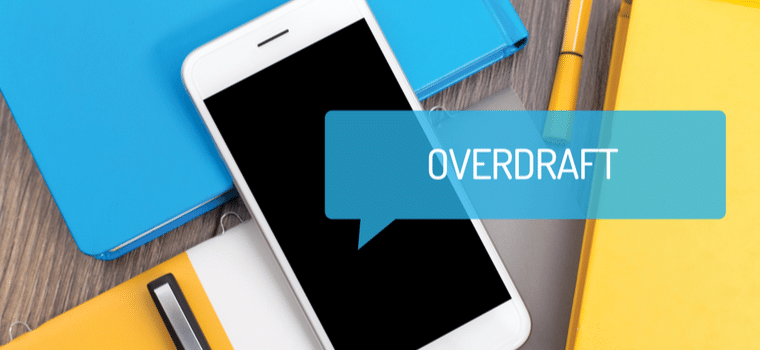Accidently overdrafting your bank account can be a frustrating experience and may have you concerned about the potential consequences. While it’s a situation that everyone wants to avoid, you may be relieved to know that bank overdrafts usually have no effect on your credit score.
What Is an Overdraft, and Does It Affect Your Credit?
An overdraft occurs when you spend more money than you have in your checking account and the bank allows that transaction to go through, leaving your account in the negative. Most banks will charge a fee when this happens as well, but you may be able to have this waived if you deposit the necessary funds to pay back your debt right away and call customer service. No matter if you’ve over-drafted your account by $0.30 or $300, it won’t affect your credit score as long as you deposit money to pay the negative balance in a timely manner.
How Can an Overdraft Impact Me Financially?
While an overdraft itself won’t impact your credit, it can have an indirect effect.
Collections: When your bank covers a transaction, you now owe the bank the money from that transaction and any fees you’ve incurred. If you don’t pay back that money, your bank can send your account to collections.
Having an account sent to collections can have a negative impact on your credit history. That information can stay on your credit report for seven years, even after you’ve paid it off.
Late Payments: When your account is overdrafted, you’ll have a negative balance, which means future payments probably won’t clear. This can impact your ability to make payments to your credit card balance and those late payments can affect your credit. If this happens to you, be sure to call your credit card company as soon as possible. If you’re able to make the payment and have a good payment history with them, you may be able to get the fee and delinquent status waived.
ChexSystems: ChexSystems is a national consumer-reporting agency, or debit bureau, that provides information about how people use their bank accounts. Debit bureaus are agencies that receive reports from banks of individuals that repeatedly overdraft their accounts or bounce checks. If you have a history of unpaid fees and bank overdrafts, you may be flagged in ChexSystems, which can make it difficult to open a new bank account. Information about misuse stays on your ChexSystems report for five years. These records may also show up on background checks, so it’s important to pay back any overdraft as soon as possible.
To obtain a copy of your ChexSystems report, visit their official website to fill out this consumer disclosure form.
Handling an Overdraft
Overdrafts happen, and a few of them once in a while won’t be the end of the world. But when it comes down to it, the best way to handle an overdraft is to avoid it altogether. If you find that you’re frequently overdrafting your checking account, you may need to take a closer look at your money management.
If overdrafts are happening because you’re spending too much money, review your habits and create a budget. Be more mindful about checking your account balances and knowing exactly how much money you have in your account.




